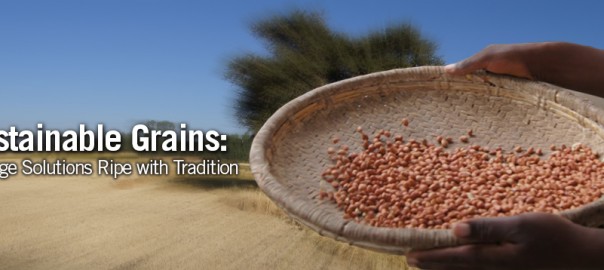For poor communities in Ghana, growing enough food for their families is only half the battle. Preventing unnecessary waste due to spoilage and pests poses a real challenge, but at OIC International, we are working alongside poor farmers to tap into a 300-year Ghanaian tradition through our Mud Silos program.
The solution is simple and one that farmers in some areas have used for hundreds of years – a grain storage unit made from local materials. To bring this cost-effective technology to scale, OIC International is working with rural communities to raise awareness of the technology and train local artisans to construct the storage systems.
Here’s why it makes sense:
![]()
Made from local materials such as dried grass and mud, the silos are designed with three compartments that can store several commodities. With good crop/seed treatment, coupled with a lifespan of up to 50 years if well maintained, this makes the system a smart choice for farmers who raise multiple crops.
![]()
To date OIC International has helped rural farmers construct 5,724 mud silos that have the capacity to store up to 1.5 metric tons of grain. OIC International’s research has found that when grains are well dried and treated before storage, the silos yield almost zero percent loss. And for poor families in Ghana, less spoilage means greater food security during the “lean months.”
![]()
In 2001, Ghana’s Ministry of Agriculture evaluated a number of grain storage systems and found that mud silos were the most cost effective and successful method for maintaining the nutritional value of crops while in storage. For less than $25, OIC International’s Mud Silos program helps farmers invest in increasing their own food supplies by reducing spoilage and pests.
![]()
Working alongside poor farmers, OIC International provides the artisan to build the mud silo, while farmers supply the cementing agent, water supply, clay and grass. To date, we have arranged for master builders to train 457 artisans (craftsmen/women) as mud silo construction experts, thus creating a skilled labor force that can generate income in nearby communities.
To read the full report, click here.


2,030 thoughts on “Sustainable Grains: Storage Solutions Ripe with Tradition”